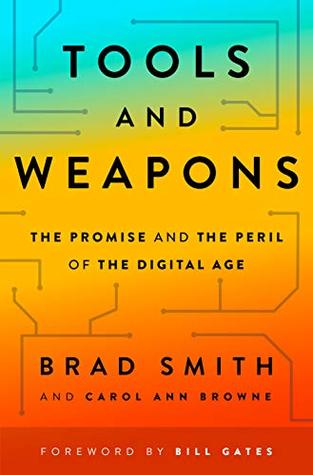More on this book
Community
Kindle Notes & Highlights
by
Brad Smith
Read between
October 20 - November 6, 2019
How do we strike the right balance between public safety, individual convenience, and personal privacy in this new era? How do we protect ourselves from cyberattacks that are using this technology to disrupt our countries, businesses, or personal lives? How do we manage the economic effects that are now rippling across our communities? Are we creating a world that will have jobs for our children? Are we creating a world we can even control?
As we also found, perhaps more than any prior advance in weapons technology, views about cybersecurity fall along generational lines. Younger generations are digital natives. Their entire lives seem to be powered by technology, and an attack on their device is an attack on their home. It’s personal. But older generations don’t always see the impact of a cyberattack the same way. This leads to an even more sobering question. Can we wake up the world before a digital 9/11? Or will governments continue to hit the snooze button?
One of our biggest challenges was how to talk publicly about the threats. Every tech leader was reluctant to name names, and we were no different. We were companies, not governments, and while we all had lived through governmental criticism before, we weren’t accustomed to accusing a foreign government of misusing our platforms and services. But it was becoming increasingly apparent that our silence risked further enabling the very threats we wanted to help stop.
“This is the house of freedom and it should constantly remind us how subtle and sensitive the barrier is between freedom and its opposite, totalitarianism.”3
The Safe Harbor principles were a fundamental pillar of the trans-Atlantic economy, but it was little known except by privacy experts. It was a creature of the EU’s 1995 privacy directive, which permitted Europeans’ personal information to move to other countries only if they had adequate privacy protection in place.
Its 2018 report titled Map to Prosperity shows that eighty new jobs are created for every one thousand new broadband subscribers.13 An increase of four megabits per second in residential broadband speed translates to an annual increase in household income of twenty-one hundred dollars. And people looking for work find a job 25 percent more quickly through online searches than through more traditional approaches.
The increase in housing prices meant that new Bellevue police officers could no longer afford to buy a home in the city they patrolled. Even the chief of police endured a commute of an hour each way to work. There was an important connection between our two points: It’s difficult to build a stronger connection between a community and its police force when local officers can’t afford to live close
As computers gained the ability to make decisions previously reserved for humans, virtually every ethical question for humanity was becoming an ethical question for computing. If millennia of debate among philosophers had not forged clear-cut and universal answers, then a consensus was not likely to emerge overnight simply because we needed to apply them to computers.
Having worked in the technology sector for more than a quarter century, I realize that the products are complex. But so are contemporary commercial airplanes, automobiles, skyscrapers, pharmaceuticals, and even food products. You don’t hear any serious suggestion that the Federal Aviation Administration should leave aircraft unregulated because they are too complicated for people in government to understand.


